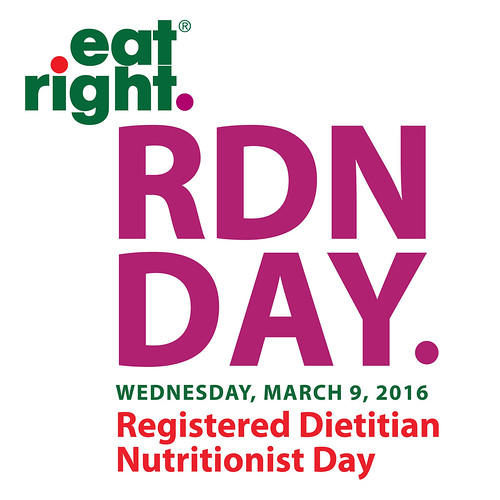
In honor of Registered Dietitian Day, today we celebrate Registered Dietitians around the country, working in all facets of society including the Federal government. Across the Federal family, RDs work in nutrition research, nutrition education development, nutrition policy, nutrition assistance programs, and much more, providing leadership, knowledge and expertise that is critical to Federal programs. To help celebrate RD Day the President of the Academy of Nutrition and Dietetics highlights the importance of RDs and their service to Federal nutrition programs.
By Dr. Evelyn F. Crayton, RDN, LDN, FAND, President of the Academy of Nutrition and Dietetics
I am proud to be a registered dietitian nutritionist, especially on Registered Dietitian Nutritionist Day, which is being celebrated today – March 9. This special day, created by the Academy of Nutrition and Dietetics, recognizes nearly 100,000 devoted food and nutrition experts and recognizes RDNs in every area of practice.
Among my greatest sources of pride are the RDNs who work with the U.S. Department of Agriculture and other government agencies to decrease food insecurity and improve food safety throughout the United States.
The reality of hunger in our country is harsh, with one in five children and one in 12 older adults at risk for hunger. And the consequences affect the health and lives of millions of people. The negative outcomes of food insecurity are physical impairments, psychological suffering, and socio-familial disturbances, as well as obesity resulting from stress, anxiety, and depression. These can lead to unhealthy eating behaviors and metabolic changes that promote weight gain. RDNs play a crucial role in educating and supporting children and families to improve their food security and diet quality.
According to the 2015 Academy of Nutrition and Dietetics’ Compensation & Benefits Survey of the Dietetics Profession, 20 percent of dietetics practitioners, both RDNs and nutrition and dietetic technicians, registered work in government-related positions. The programs touch one in four Americans annually.
One of the USDA’s mission areas is Food, Nutrition and Consumer Services, which administers federal domestic nutrition assistance programs, such as Women, Infants, and Children, serving 9 million people each month. WIC provides federal grants to states for supplemental foods, health care referrals, and nutrition education for low-income pregnant, breast-feeding, and non-breastfeeding postpartum women, and to infants and children up to age 5 who are found to be at nutritional risk. Nutrition research conducted by RDNs such as the Health Disparities Evidence Analysis Project, identifies strategies for education, improving access to food and improving food security among WIC recipients.
RDNs also work with agencies like the Center for Nutrition Policy and Promotion, linking scientific research to the nutrition needs of consumers with broad-reaching nutrition recommendations. These include the Dietary Guidelines for Americans – which, I am proud to say, RDNs play an enormous role in developing. RDNs serve on the Dietary Guidelines Advisory Committee, which analyzes the evidence and makes recommendations to the government; and RDNs working in government help shape the scientific recommendations into practical consumer resources like MyPlate. These educational materials in turn are used by the Academy and our members, as well as other health professionals and educators who serve the public.
RDNs are involved with the Supplemental Nutrition Assistance Program and National School Lunch Program, as well as the Food Safety and Inspection Service, affecting every American every day by ensuring our food supply is safe.
At all times of the year, but especially on Registered Dietitian Nutritionist Day, please join me in applauding the great work of RDNs working in government on the national and community levels, who do so much to help every person eat right.
Happy RDN Day!



